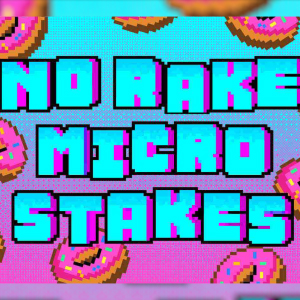How a Bankroll Management Strategy Helps Avoid Losses in Poker
3 months ago

27 Jun
Playing poker without a budget is like going grocery shopping hungry. You’ll probably spend too much and regret it later. That’s why bankroll management matters. You must reserve a specific amount of money for poker entertainment and stick to it without going over.
That’s how you stay in control, whether playing online or at a local table in a land-based casino. So you don’t get carried away and end up losing more than you planned.
Why Bankroll Management Matters in Poker
Poker is full of ups and downs. One day, you’re stacking chips; the next, you can’t catch a decent hand. Even the pros hit rough patches. It’s part of the game. You might win big with a lucky hand, but over time, it's smart choices that keep you in it.
It’s like showing up to a hockey game without your stick. Playing without a set budget just doesn’t make sense. According to experts, even skilled players go through long losing streaks. That’s just the nature of poker, and you can’t deny it.
If you’re not keeping track of how much you’re spending, emotions can take the wheel. When that happens, you start making risky moves, and the losses worsen. That’s why bankroll management is key. It helps you stay level-headed, even when the cards turn cold, and keeps your poker budget from going off the rails.
Key Benefits of Smart Bankroll Management
Smart bankroll management isn’t just for pros. It’s something every poker player should use. It keeps your game on track, protects your money, and helps you make better decisions when things get rough. Here’s how it makes a real difference.
Stops Tilt Before It Starts
If you’ve played poker long enough, you know how easy it is to go on tilt. One bad beat, and suddenly, you're chasing losses, making wild bets, and hoping luck saves you. Bankroll management helps stop that from happening. When you’ve got a set budget, you’re more likely to take a breath instead of taking a risky shot.
Helps You Ride Out the Cold Streaks
Everyone hits a rough patch now and then. The difference is that players who manage their money properly can keep playing through it. Instead of blowing your whole stack in one bad night, you’ve got enough left to wait for things to turn around.
Keeps You at the Right Table
Knowing your limits also means choosing the right stakes. If you’ve got a small bankroll, there’s no shame in sticking to low-stakes games. It keeps the pressure down, and your money lasts longer.
Encourages Long-Term Thinking
Managing your bankroll isn’t just about setting limits. It's also about knowing where to play safely. For players who enjoy exploring poker strategies on slots-based platforms, you can check up casino listings free slots on Slotozilla. These sites offer a solid mix of free slot play, demo slot games, and other online casino games that Canadian players can enjoy without spending anything. It’s smart to stay sharp without dipping into your poker funds.
Signs You’re Not Managing Your Bankroll Properly
If poker feels more stressful than fun lately, your bankroll habits might need a check. Many players fall into bad patterns without even noticing. Here are a few red flags to watch for:
- You deposit impulsively.
- You move to higher stakes after a big win.
- You don’t have a clear “stop-loss” rule.
- Your losses affect your mood or decisions.
If any of these sound familiar, it might be time to rethink how you handle your poker money.
How to Set a Proper Bankroll for Different Game Types
Not all poker games are equal, so your bankroll should match the kind of game you play. Cash games usually have fewer wild swings than tournaments, which can be pretty unpredictable. Sit & Go games fall somewhere in between. The main objective is to reserve enough money so you don’t have to worry about losing everything.
How much you set aside depends on how careful or daring you want to be with your money. Here’s a simple chart to give you an idea:
Players have different strategies to try their luck in poker. These are some common tips. So, think about your skills and how much risk feels right for you.
Tips to Improve Your Bankroll Strategy
Want to make your bankroll last longer? Here are a few simple tips that can help you stay on track and avoid costly mistakes:
- Set a fixed budget for poker each month, and don’t go over it.
- Only play games that match what your bankroll can handle.
- Keep track of your wins and losses in a simple spreadsheet.
- Step away for a bit if you’re on a bad run; it helps clear your mind.
- Don’t mix your poker funds with your regular bank account.
- Take advantage of freerolls and bonuses to stretch your roll further.
Know Your Limits by Learning From the Pros
Even the best in the game know how important it is to stick to a bankroll plan. Big names in poker don’t just play smart hands. They manage their money like pros, too. Even the best gambler ever didn’t count on luck alone. Careful planning and smart risk control were key to their long-term success. That’s what keeps the greats from going broke.
Conclusion
Bankroll management isn’t simply a matter of persistence in the game. It is about staying alert and in control. New or experienced player, tracking your money conscientiously is always conducive to playing well. Make that a habit - it will stick with you, giving yourself every chance of succeeding at the game.







Comments
You need to be logged in to post a new comment